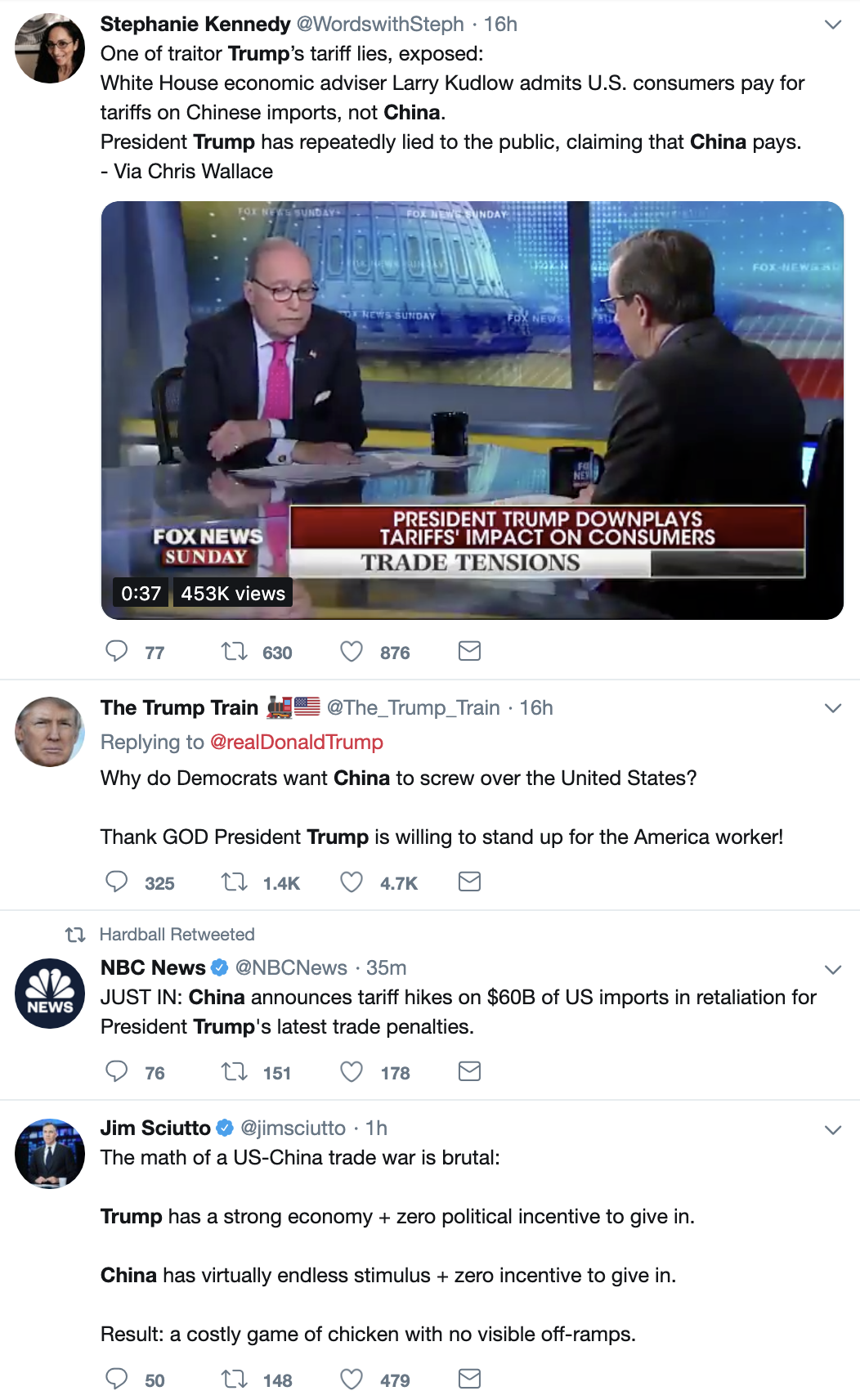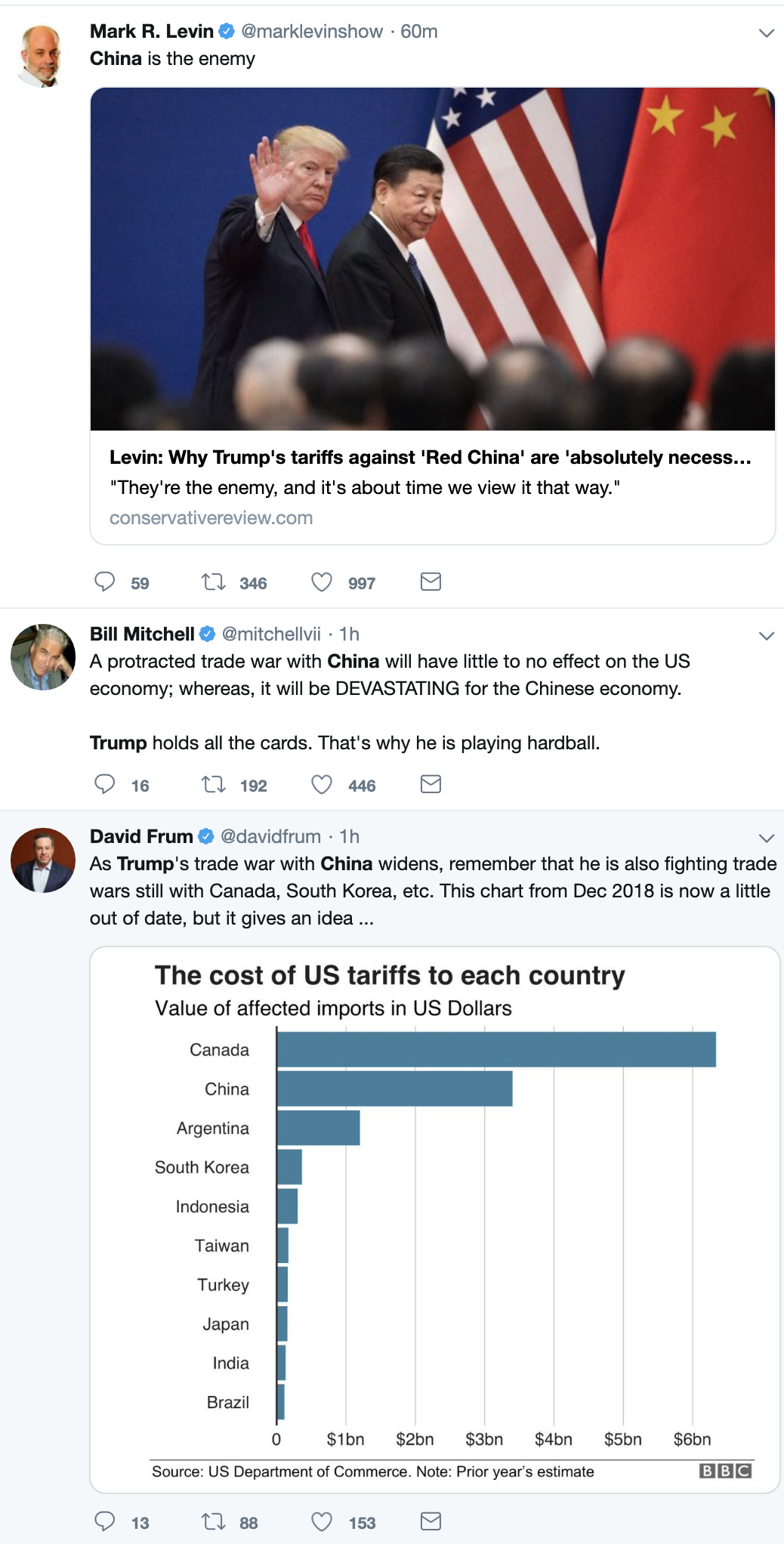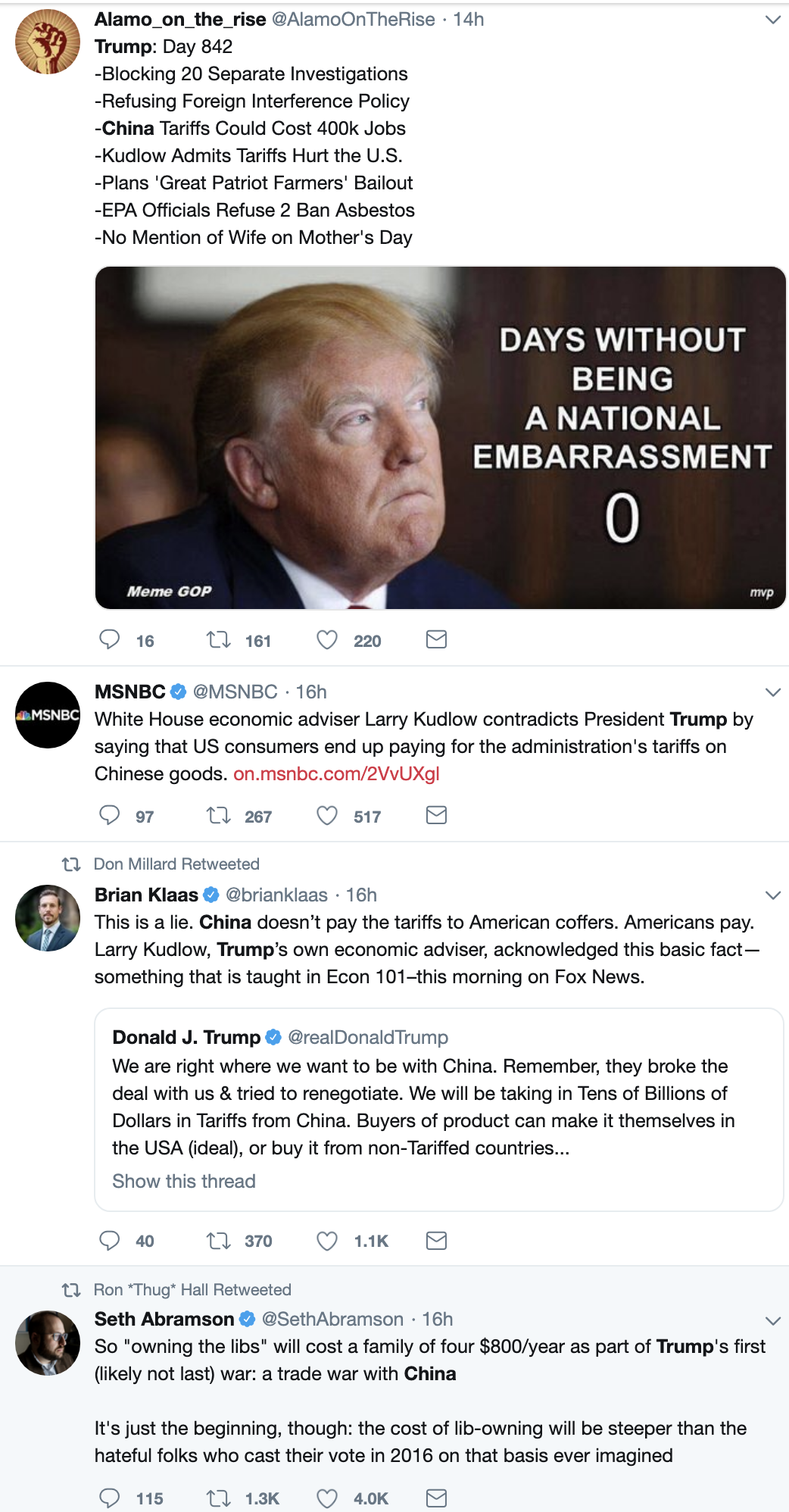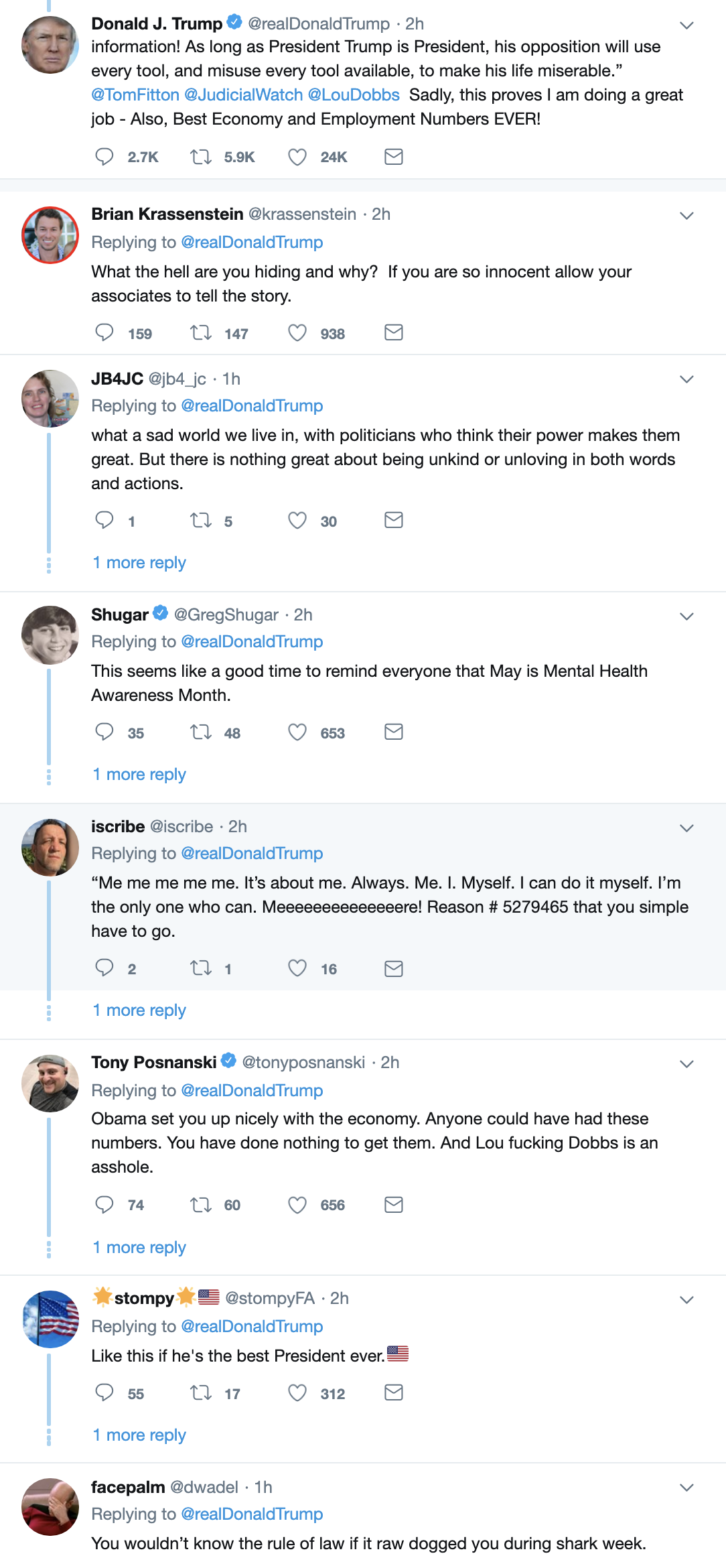Donald Trump has been touting his wonderful China tariffs idea. Since he implemented a 10 percent tariff, the soybean farmers have suffered tremendously. Then, POTUS raised tariffs to 25 percent. The Sunday morning talk shows condemned Trump for his economic carelessness. This is how the Chinese responded.
Beijing, China announced that it decided to retaliate by increasing its tariffs to 25 percent from 10 percent starting on the first of June, according to the Chinese Finance Ministry. That will shake out to an increase of $60 billion on imported U.S. products, according to CNBC.
Even though the president forced the Chinese to retaliate, he fired off a series of early morning tweets saying that China’s tariffs would be:
‘(V)ery bad for China. China should not retaliate” as it ‘will only get worse!’ You had a great deal, almost completed, & you backed out!” he wrote of China and its President Xi Jinping.’
Trump’s tariffs were smaller than those the Chinese government imposed. His recent raise impacted $200 billion on Chinese products. The two largest economies in the world have started playing a game of economic chicken.
Investors have become extremely nervous. U.S. stock futures. dropped like a rock with economists saying that this trade war between the U.S. and China could threaten the global economy. The Washington Post reported:
‘China’s response, announced by its Ministry of Finance, said it targeted “U.S. unilateralism and trade protectionism.”’
The Post noted that China’s news “spooked financial markets:”
‘The rapid-fire succession of stark economic news spooked financial markets, with U.S. futures indicating drops of nearly 2 percent at the open for both the Dow Jones industrial average and the Standard & Poor’s 500 index. While many business executives and investors had hoped tensions between the U.S. and China would be resolved easily, the recent developments show how much each country is digging in for a long fight.’
Senior professor trade policy at Cornell University Eswar Prasad said:
‘Over the past week, hopes for at least a partial and temporary ceasefire between the two sides have given way to the prospect of a rapidly escalating and broadening economic conflict between the two countries.’
China’s tariffs targeted the U.S. agriculture sector. Soybean farmers have lost their largest buyer. With the rivers swollen in an ever-increasingly severe climate change, farmers watch as last year’s product rots on barges that cannot run. Plus, the farmers cannot get into the fields to plant this year’s crops.
Yet, soybean farmers have not been the only ones hit by Trump’s crackpot China tariffs. The Chinese have also hit “peanuts, sugar, wheat, chicken, and turkey.”
Not only that, the White House announced that China has pulled out from significant parts of a burgeoning trade agreement. Treasury Secretary Steven Mnuchin and U.S. Trade Representative Robert Lighthizer held meetings with China’s economic negotiators last week. However, those talks broke down Friday.
Mnuchin said that the talks were “constructive.” However, economists say that the president’s short-term thinking has created a serious problem in trade negotiations with China.
Trump also has had his eye on China’s theft of “intellectual property theft, forced technology transfers, and trade deficits,” The Post reported.

















